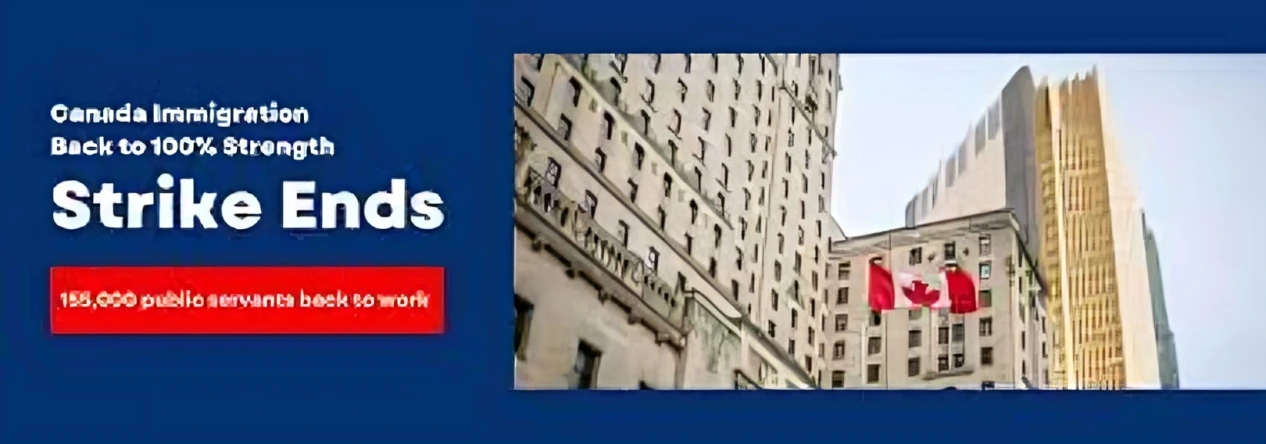PSAC and Federal Government Reach Deal: Impact on IRCC Services
The Public Service Alliance of Canada (PSAC) and the Federal Government have reached a tentative agreement following a strike that impacted over 155,000 public servants, including those at Immigration, Refugees and Citizenship Canada (IRCC).
The strike began on April 19. PSAC has instructed its members to return to work as of 9 AM Eastern Time this morning, or their next available shift.
PSAC, the union representing the federal employees who went on strike, says the tentative agreement includes higher wages which will close the gap with inflation, new and improved language relating to working from home, among other favourable provisions for its members.
"There may still be some service impacts over the next few days and weeks as services return to full capacity," IRCC writes on its website.We will keep this page updated throughout the labour interruption to let you know how services are affected."
Throughout the strike, IRCC warned that there would be delays in a number of areas, including:
application processing in-person appointments or events such as citizenship ceremonies contacting IRCC by email, phone, or social media consular citizenship and passport services
Access to Information Act requests for passport services in Canada
Services for grants and contributions.
During the strike, applicants could still apply online to IRCC to extend their stay in Canada.
Moreover, despite the strike, the IRCC held its regularly scheduled Express Entry draw last Wednesday, inviting an additional 3,500 candidates to apply for permanent residence.
Employment and Social Development Canada (ESDC) also reported delays in the Temporary Foreign Worker Programme (TFWP) and biometric data collecting.
ESDC is in charge of reviewing Labour Market Impact Assessments (LMIAs), which are required for firms seeking to engage temporary foreign employees. Many Canadian employers rely on the TFWP to fill seasonal and urgent job openings in high-demand industries.
What was the reason for the strike?
PSAC held nationwide strike ballots from February 22 to April 11. Following the failure of subsequent negotiations to reach an agreement, PSAC members voted to strike on April 19 at 12:01 a.m.
Instead of contracting positions to commercial organisations, the Union stated that it was pursuing fair compensation, a better work-life balance, greater workplace diversity, and fewer layoffs by creating more jobs.
Union members intended to continue working remotely, as they had done throughout the COVID-19 pandemic, which was one of the "deal breakers." PSAC stated that public employees were just as productive working remotely as they were in the office, and that 90% of employees desire to continue working remotely.
While on strike, remote workers were compelled to walk the picket line.
The government claims that the demands, as drafted during negotiations, would have a significant impact on its capacity to provide services to Canadians and hinder its ability to properly manage employees inside the public sector.
In light of Canada's present high cost of living, the Union was also requesting higher compensation for its members.
While on strike, remote workers were compelled to walk the picket line.
The government claims that the demands, as drafted during negotiations, would have a significant impact on its capacity to provide services to Canadians and hinder its ability to properly manage employees inside the public sector.
In light of Canada's present high cost of living, the Union was also requesting higher compensation for its members.



Leave a Comment
Your email address will not be published.